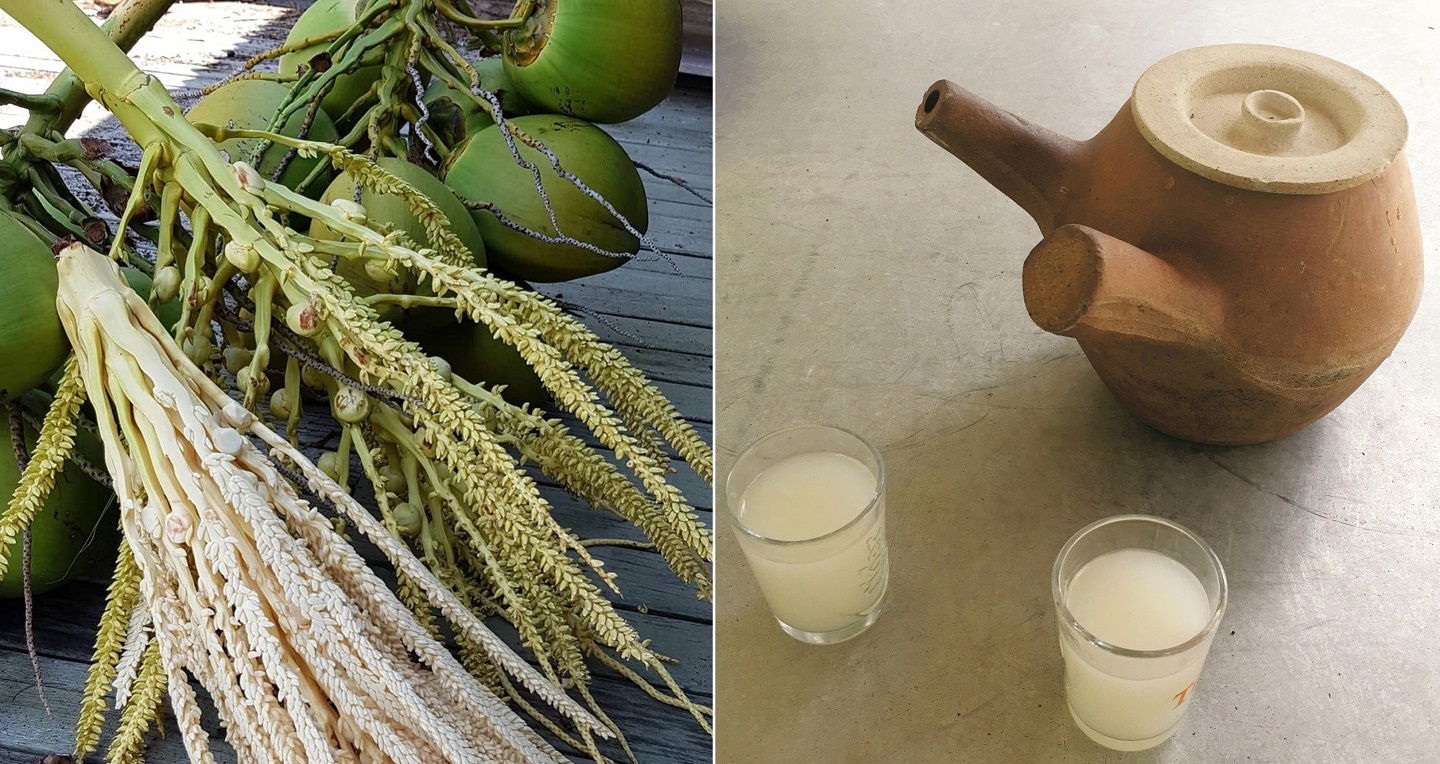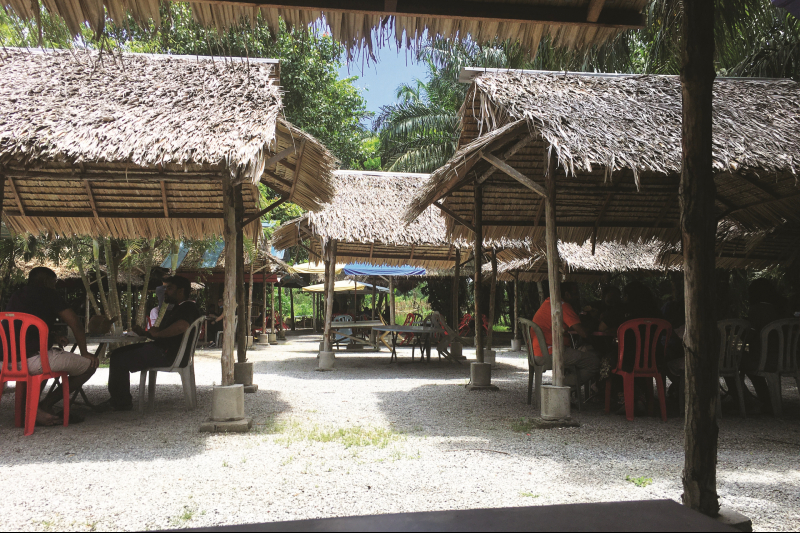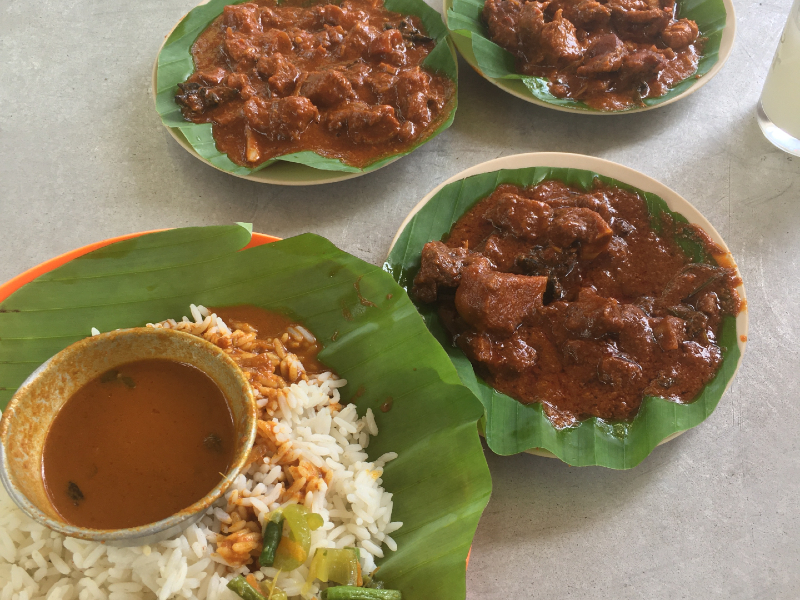
At Chelliah Toppu, toddy is served in a claypot which keeps the liquid cool (Photo: Chee Shin Yee; Lakshmi Sekhar/The Edge)
While overseas travel is currently restricted, exploring the unfamiliar gems in Malaysia has become a fun holiday alternative. One weekend, I drove to Banting to try the toddy at one of Selangor’s first licensed brewers, Chelliah Toppu.
The drive from KL to the sleepy town makes for a pleasant change from the concrete jungle of high-rise buildings and apartments to lush greenery and quaint homes. On the way, we stopped by roadside stalls to pick up petai, rambutan and sweet plantains. Guided by Waze, we reached an unassuming bungalow at the end of a cul-de-sac. Many cars were parked there, but the absence of a clear entrance or sign, not to mention the lack of people, made us a little nervous. Not wanting to walk into someone’s home, we patiently waited for another customer to drive in and head towards one of the buildings, before following suit.
As we turned the corner, we were surprised to see a spacious backyard filled with coconut and palm trees. Customers sat comfortably under thatched huts, allowing for easy social distancing. In our broken Tamil, we ordered the prized brew that Chelliah Toppu is known for: toddy.
A mildly alcoholic drink with many names — it is called nkwu ocha in Nigeria, vino de coyol in Central America and kallu in Kerala, India — palm wine is made from the fermented sap of palm trees. While it can be made from raffia, date and even oil palms, Malaysia’s toddy comes predominantly from coconut palm.
img_6112_1.jpg

Skilled workers climb up the trees to tap the juice from the buds, inserting small pipes that allow the liquid to drip into earthen pots hung overnight. The collected sugary liquid begins to ferment immediately, and becomes increasingly more alcoholic the longer it is kept.
In Malaysia, toddy can be traced back to the 1880s, drunk by Indian migrants in the rubber estates. Because of how cheap and easy it is to produce, there was an increase in consumption among these migrants, which led to a contentious anti-toddy movement. Fuelled by concerns about the negative effects of toddy on the community and other problems in the industry, the Planters Association was formed in 1908.
In the 1930s, a prohibition movement gained popularity, but it was only in 1946 that resolutions were passed by the Malayan Indian Congress against the sale of toddy. In a report by academic Parameswari Krishnan titled “Anti-Toddy Movement in Malaya, 1900-1957”, he writes, “To the British, toddy provided a twofold interest, the first was profit and the second was control over the labour. The two were highly valued and the colonial authorities could not relinquish them.”
Today, there are very few toddy brewers in Malaysia and we found ourselves at one of the more well-known spots. At Chelliah Toppu, the fermented brew costs RM15 and is served in a large claypot jar. More used to milder forms of toddy, I found the sharp, sour bite quite surprising as it had an almost vinegary quality. Nevertheless, in the humid heat, the fizzy, sweet and tangy toddy was a refreshing beverage. The purist in me prefers toddy as it is, but many enjoy it with Guinness or beer. Our cheerful and incredibly helpful waiter, who was also rightly amused by our mix of Malayalam and Tamil, rattled off a variety of dishes available.
img_6133_1.jpg

A spicy masala is the perfect complement to the sweet tang of toddy, so it is only natural that Chelliah Toppu’s signature dishes are meat peratals — a curry with a thick gravy. The choices were chicken, mutton and even wild boar, which cost around RM8 a plate. The base for all the curries was identical, with ample spices and curry powder, but this monotony allowed the meat itself to be the star of the dish.
The wild boar meat, which was cooked to perfection, created a creamier gravy that still retained its level of heat. My favourite was the mutton peratal, with its beautifully tender morsels and spicy sauce. While I found the mutton peratal the spiciest and most satisfying, my companion championed the wild boar. If your preference is for leaner meat, then you would probably like the free-range chicken peratal. However, without the fat that the other two meats had, I felt the gravy was a little flat.
When we asked if there were any vegetable dishes, our waiter pointed at the small spoonful of beans, snake gourd and carrot stir fry that accompanied our rice and papadum. Clearly, this was a carnivores’ paradise, and vegetables were like a dirty word. In that spirit, we ordered some fried chicken to round the meal off.
Just like how whisky is best enjoyed in the thick of winter, toddy is clearly the spirit made for our tropical heat. The spiciness of the meal, a familiar and pleasurable sensation on the lips, was cooled down by the remaining dregs in the earthen toddy pot. We were quick to order a takeaway bottle of toddy and a few helpings of newspaper-wrapped peratals before heading off, taking a short detour to Morib beach to walk off our post-prandial sleepiness. In a couple of months as the unbearable heat persists, another visit to Banting for its palm wine might be called for.
This article first appeared on Aug 31, 2020 in The Edge Malaysia.


